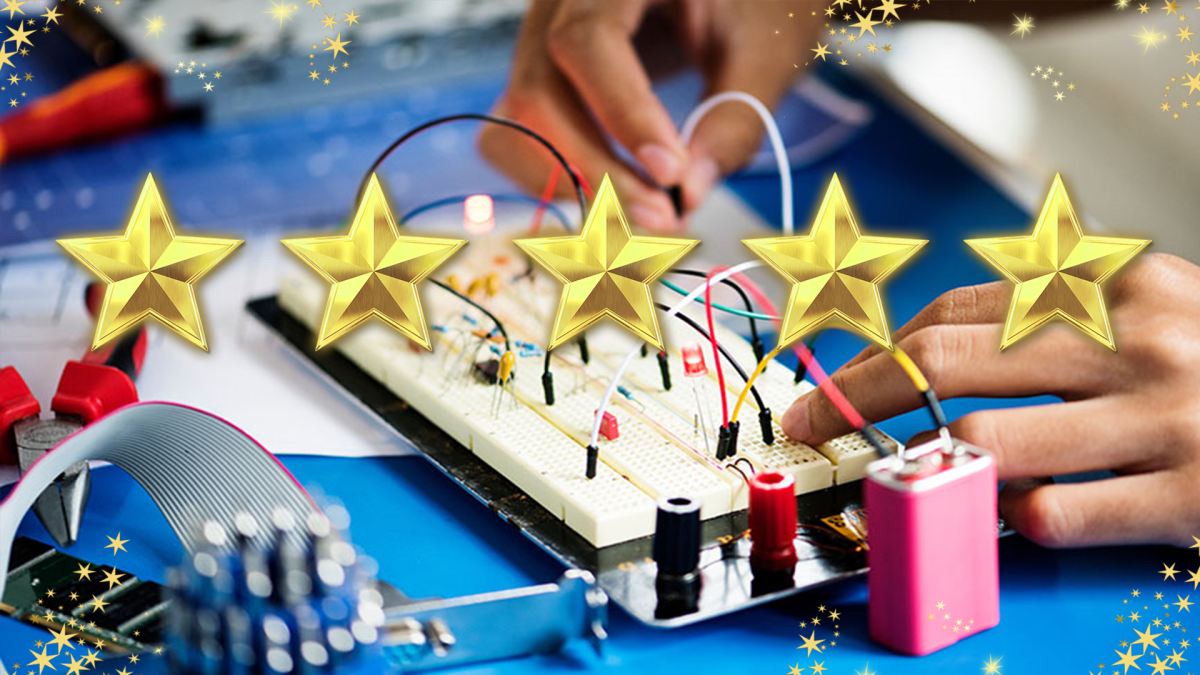In this primary Kindergarten-1st grade STEM lesson, students will learn to define algorithm, bug, and debug in reference to programming. Through engagement with a virtual simulation, students will
Math Magic through Coding!
In this 2nd grade STEM lesson, students will learn how symbols (directional arrows) can be used to program an object's movements. They will develop an algorithm using a sequential graphic organizer to
Students will create a "football" to practice kicking accuracy. They will collect data and create a graph showing their results. After students will learn about a kickers role in the NFL, what a field
This STEAM lesson is ideal for Tucson/Pima County Middle School Students who can participate in the annual KIDStruction building contest, but you can also duplicate many of the learning opportunities
In this hands-on engineering and science project, students will become earthquake engineers tasked with designing and constructing earthquake-proof structures using toothpicks and mini marshmallows
In this project, 8th-grade students will engage in hands-on exploration of elastic potential energy and its conversion to kinetic energy using small catapults. Through experimentation and data
This is a fun unit that will discuss drones and building an obstacle course created by students to fly the drones through.
This lesson plan helps students understand exponential functions by using an LED circuit. LED luminosity decreases at an exponential rate as more are added in series. As students add more lights to
This lesson helps students understand the properties of 3D solids from their 2D base shapes and teaches them how to use CAD software to build their own 3D models of real world objects by breaking them
This lesson explores the concept of density. Students will observe a phenomenon involving floating and sinking. They will design their own investigations and they will learn how to use the density
James and the Giant Peach is a wonderful fantasy novel but what if the peach, the insects and James were right in front of our eyes? What would they look like when they've been turned into giant
This is a continuation lesson in which we compare student data to the previous day's data using GeoGebra to help us generate dot plots and calculate statistics.
Students will create dot plots (both physically and using technology) to represent class data, determine important statistics, and interpret those statistics in context.
In this lesson students will discover harmful effects and chemical makeups of artificial ingredients, specifically food coloring and red dyes. Students will experiment with and demonstrate capillary
The investigation focuses on exploring the impact of hose length on water flow rate in a solar-powered pump system. Students will set up a simple experiment using a solar pump connected to hoses of
In this lesson designed for 7th grade, students will explore increasing and decreasing magnetic field of electromagnets by changing the iron core, wire gauge, or wire coils to determine which variable
Students will understand the concept of levers as simple machines and will identify and classify everyday objects as levers. Students will apply basic mathematical concepts to measure and compare the
Students get to investigate how energy transfers using different phenomena. They practice using a Colorado PhET simulation on the differences between potential and kinetic energy. Students will
This lesson introduces students to TinkerCAD and has them create simple shapes that measure at a given ratio. The students then print and measure their design to see how close they were able to get to
Students read the story "Just a Second" to introduce students to geologic time. Next, they are given an activity to understand how long is 4.6 billion years. Then students complete a lab that allows
After becoming familiar with the factors that affect lift from the previous Flight Basics lesson and going over key weather concepts from this lesson, students will be expected to make a device to
This is the part one of the composting lesson that is aligned to the ELA standards of narrative reading and writing. In this lesson, students build their experiences by preparing the bucket composters
Students will dive into the fascinating world of parasitology as they collaborate in teams of three to analyze and evaluate the presence of parasites. The lesson aims to enhance both teamwork and
Student will be able to compare the energy content of two common fuels used for energy production (ethanol and kerosene). Students will work with a partner to investigate the efficiency and
Featured Lesson Plans
Check out these notable lesson plans.

A Shocking Dystopia: STEM Adventures in The City of Ember Part 2 of 4: A Way to See in the Dark
This lesson is PART 2 of a four-lesson unit, which focuses on futures thinking, the phenomenon of electricity, closed-system agriculture, and water as a renewable energy resource. “The City of Ember”

A Shocking Dystopia: STEM Adventures in The City of Ember Part 1 of 4: Blackout! Community Circuits
This lesson is PART 1 of a four-lesson unit, which focuses on futures thinking, the phenomenon of electricity, closed-system agriculture, and water as a renewable energy resource. “The City of Ember”

Students will be able to collaboratively build, and program a simple robot using Lego Spike Prime kits. Students will demonstrate basic skills in robotics and coding by successfully constructing their
